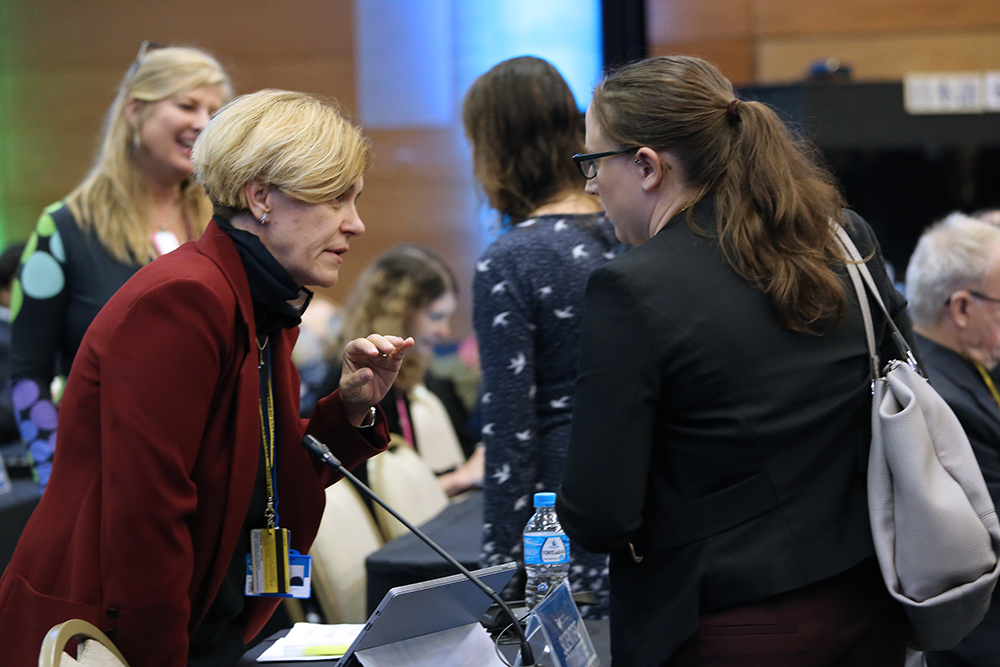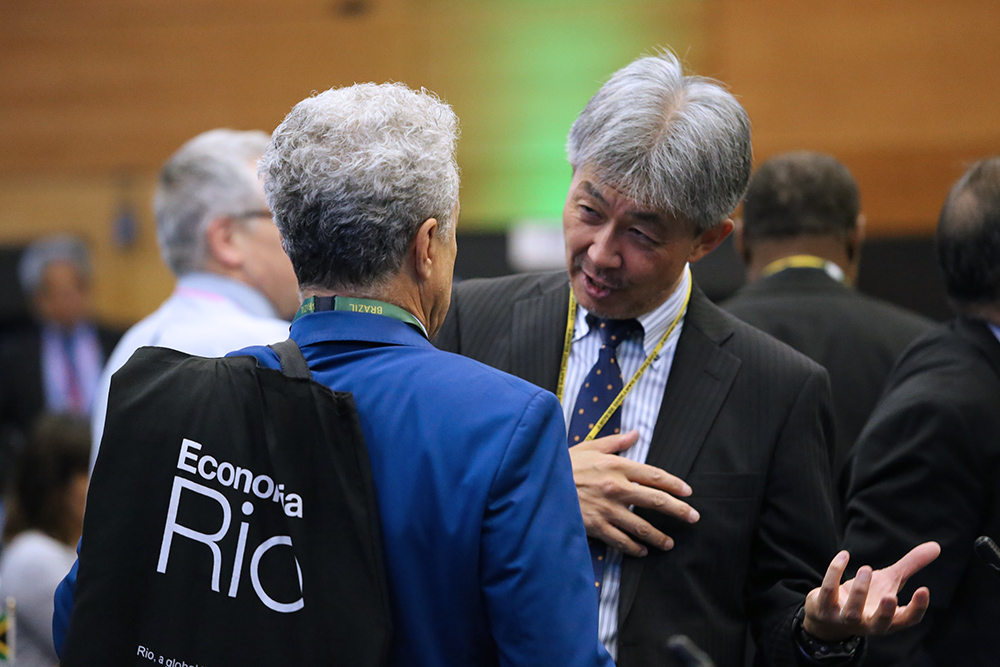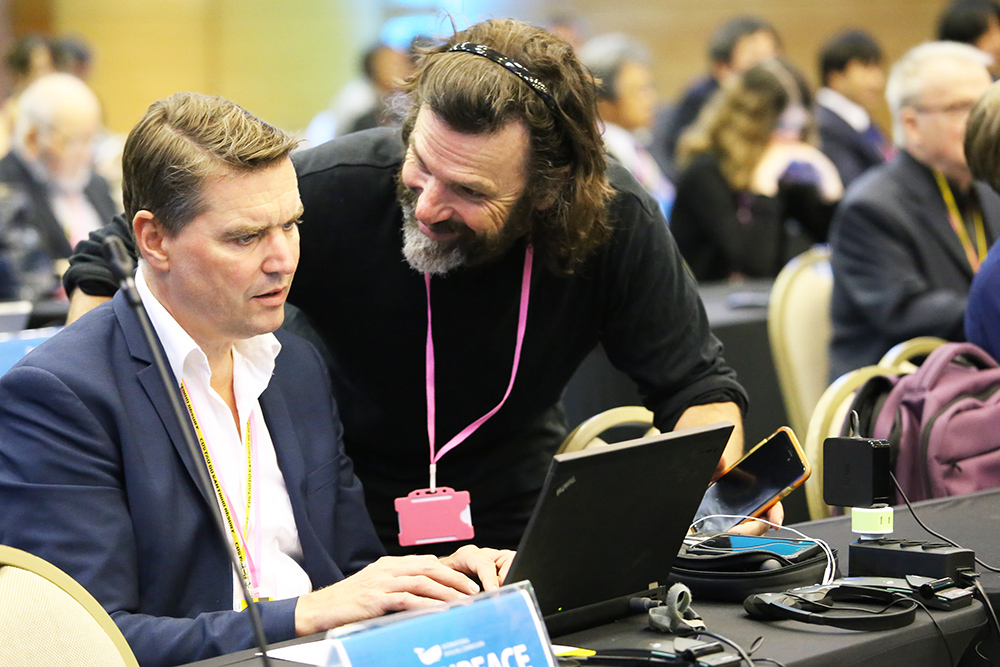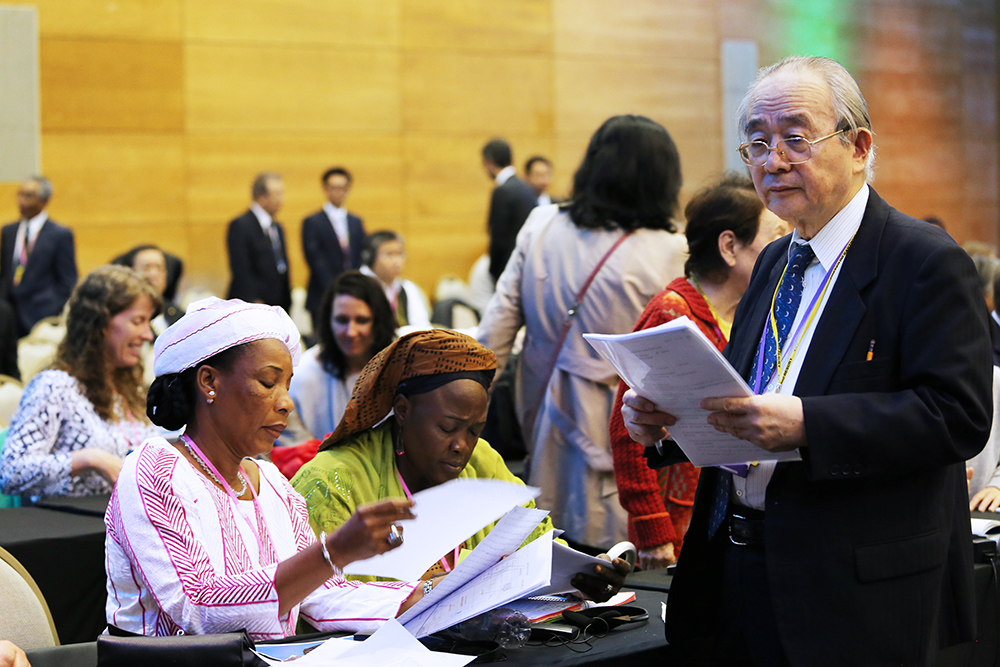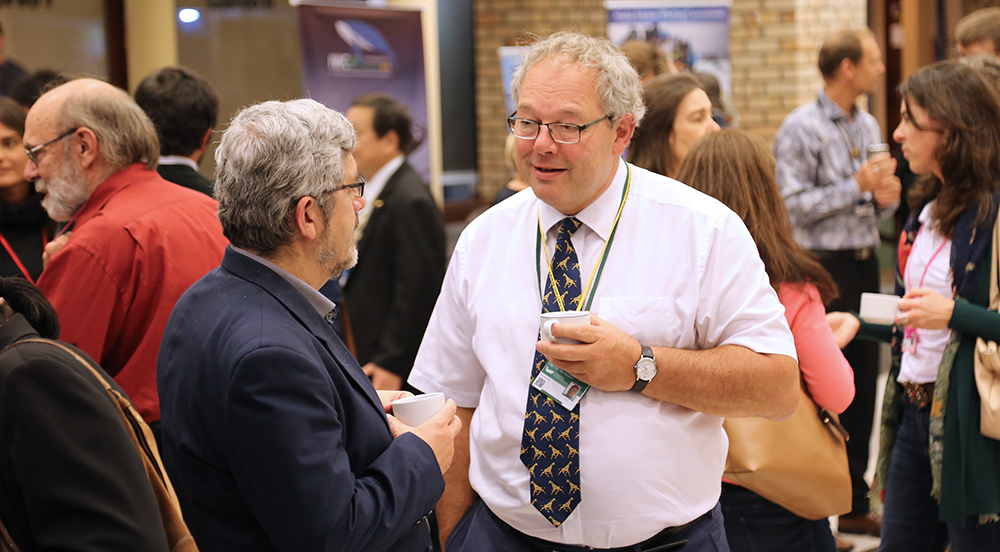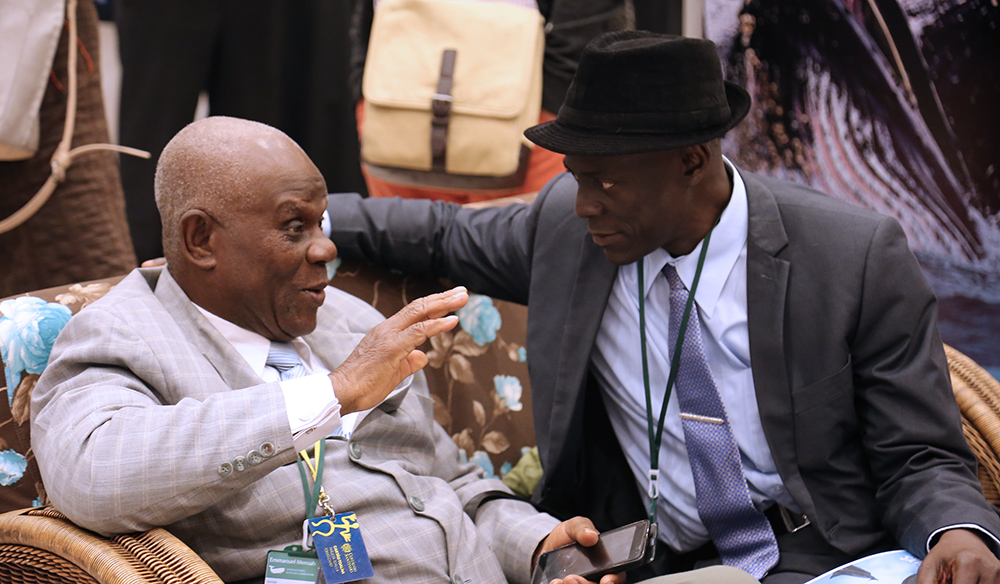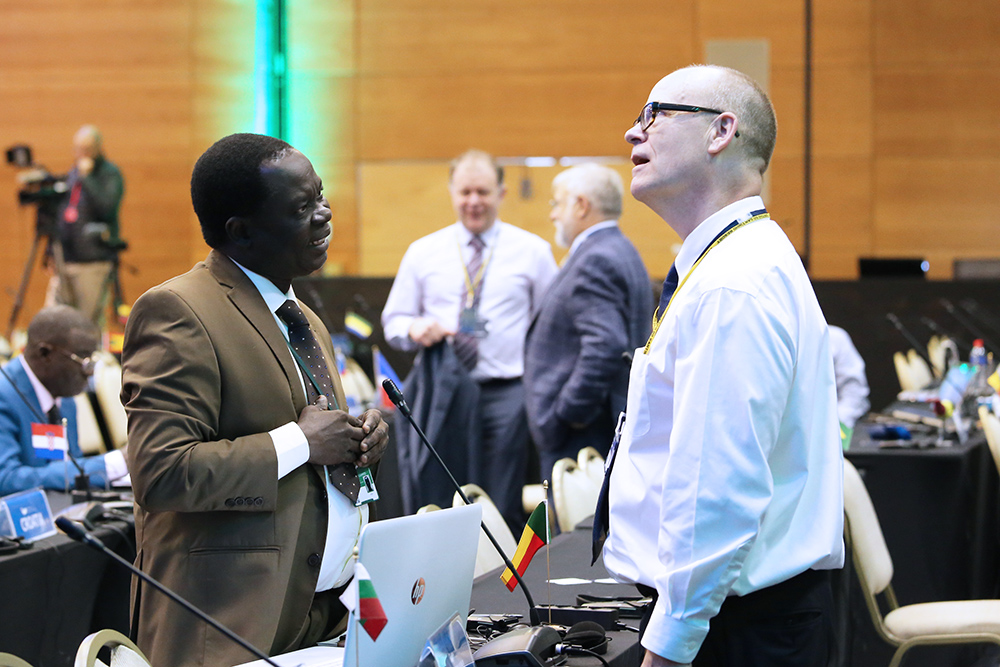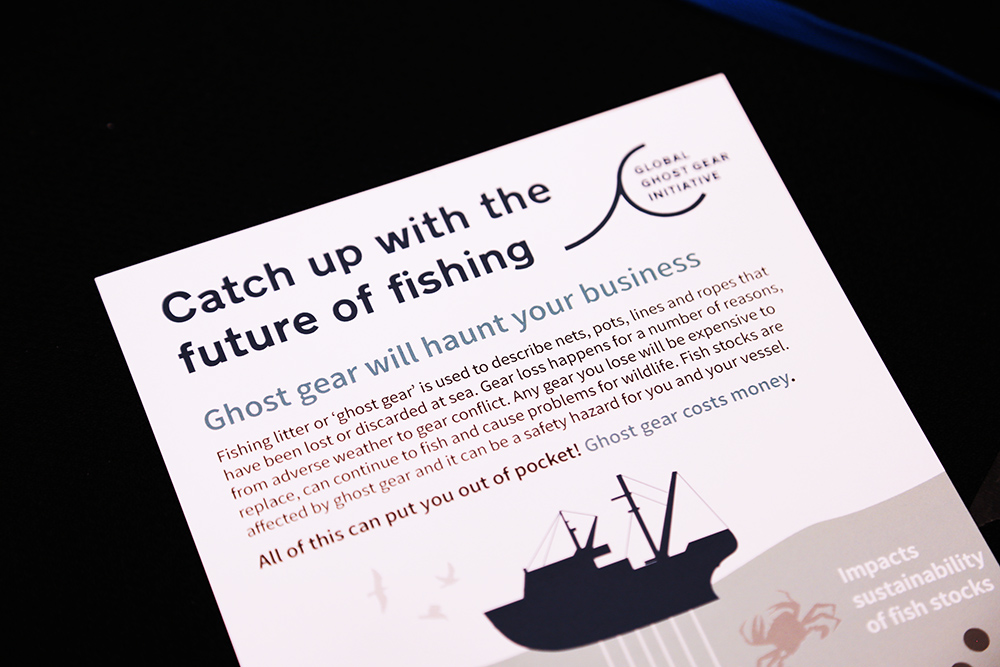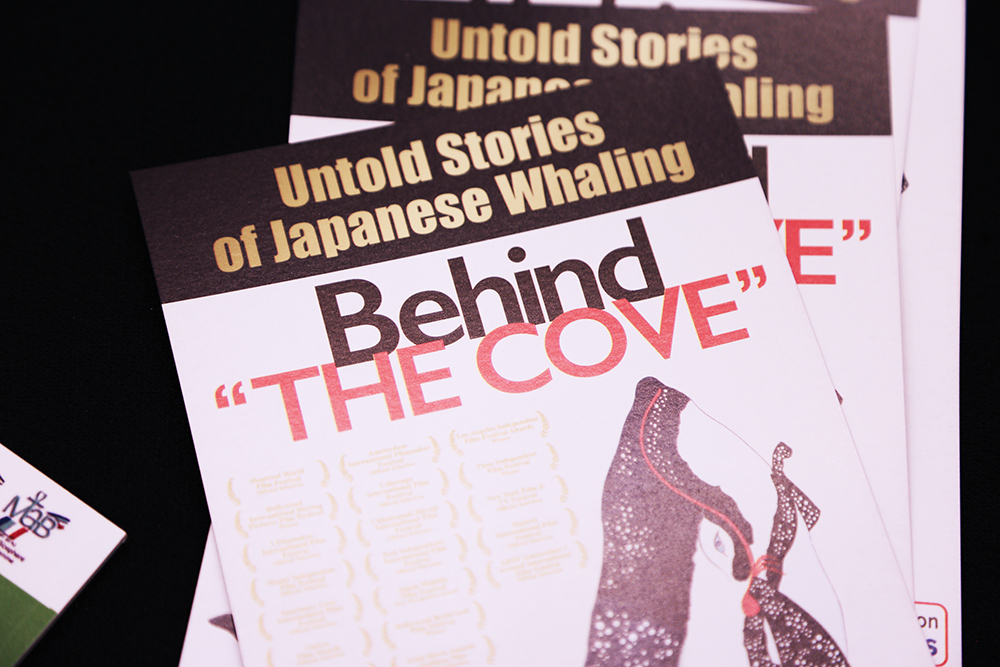Summary
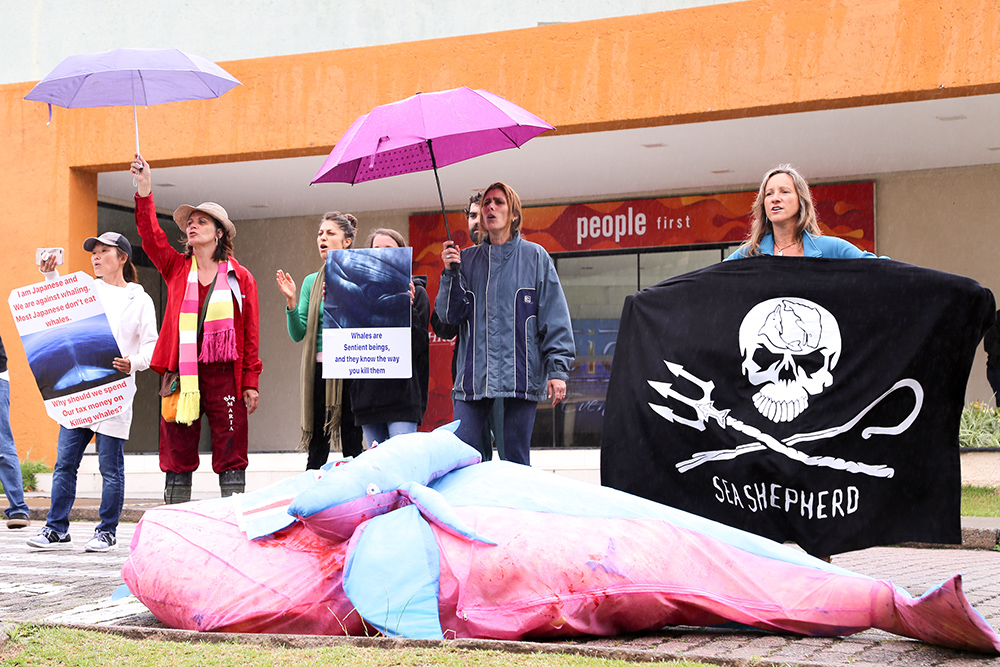
On Wednesday, IWC delegates considered a revised proposed Schedule amendment on aboriginal subsistence whaling (ASW), which included:
- an enhanced review by the Commission of information submitted;
- strengthened safeguards related to a limited automatic renewal process; and
- greater emphasis on improving the welfare outcomes of ASW hunts.
Lacking consensus, the resolution was approved with 58 member states supporting, seven opposing, and five abstaining. Many delegates found moving a statement given by an Alaskan whaler, who said the amendment meant his community could now “provide for our people,” without anxiety.
The IWC also considered and endorsed reports on the status and health of cetaceans, including:
- conservation, management needs, and identification gaps related to whale stocks;
- small cetaceans, including the critical situation of several species;
- cetacean health and disease; and
- stock definition and DNA testing.
Delegates also considered and endorsed reports on cetacean habitat, including on:
- the State of Cetacean Environment Report (SOCER), the Arctic Ocean, and climate change; and
- ecosystem functioning.
Delegates then considered a proposed resolution on advancing the Commission’s work on the role of cetaceans in the ecosystem functioning. Lacking consensus, delegates adopted the proposed resolution, 40 in favor, 23 opposing, with seven abstentions.
On unintended anthropogenic impacts, the IWC considered and endorsed reports on pollution and marine debris. Delegates adopted, by consensus, a proposed resolution on addressing ghost gear and entanglements, after the addition of language clarifying that the resolution should not duplicate work of other organizations.
On underwater anthropogenic noise, delegates also adopted a proposed resolution by consensus, with the addition of similar language regarding no duplication of work.
Delegates also endorsed reports on cetacean bycatch and ship strikes.
During an extended session at the close of the day, delegates were asked to consider, in tandem, the proposed Florianópolis Declaration on the role of the IWC, and Japan’s IWC in the Future joint-package. Delegates heard more than 30 statements on the Florianópolis Declaration and the day ended with a promise from Chair Morishita to expect Thursday to be a long day, given how much remained on the agenda.
IISD Reporting Services, through its ENB Meeting Coverage, provided daily web coverage and a summary and analysis report from IWC67.
Photos by IISD/ENB | Ángeles Estrada
For photo reprint permissions, please follow instructions at our Attribution Regulations for Meeting Photo Usage Page
Plenary
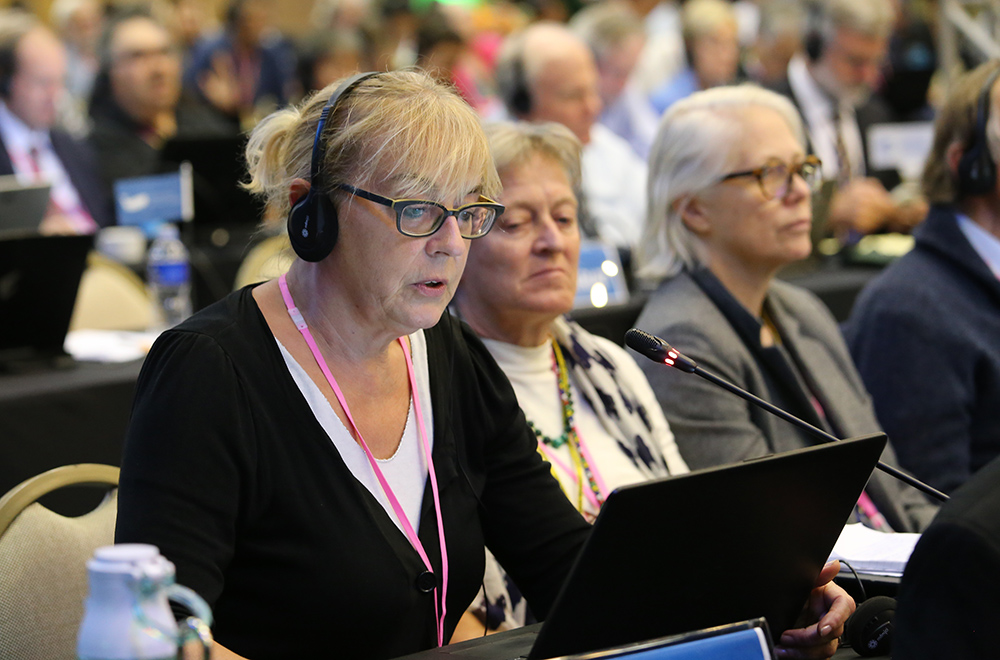
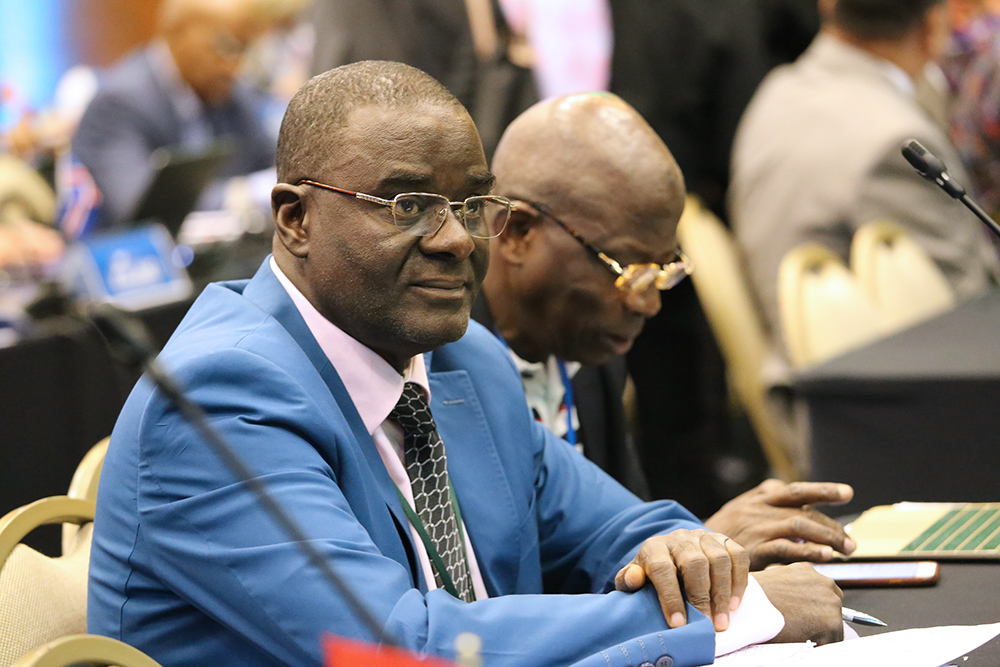
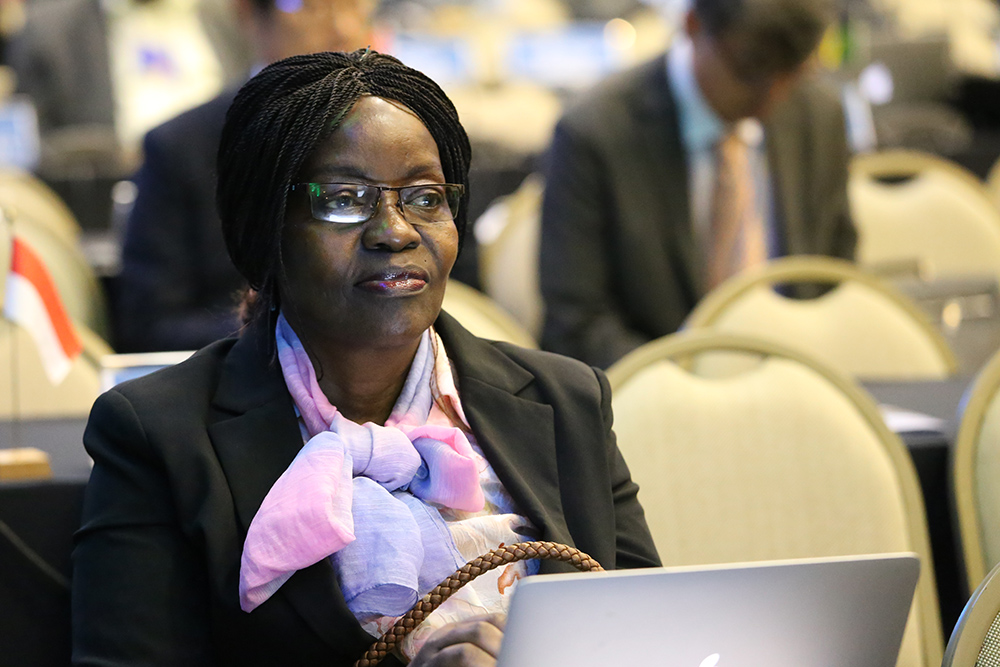
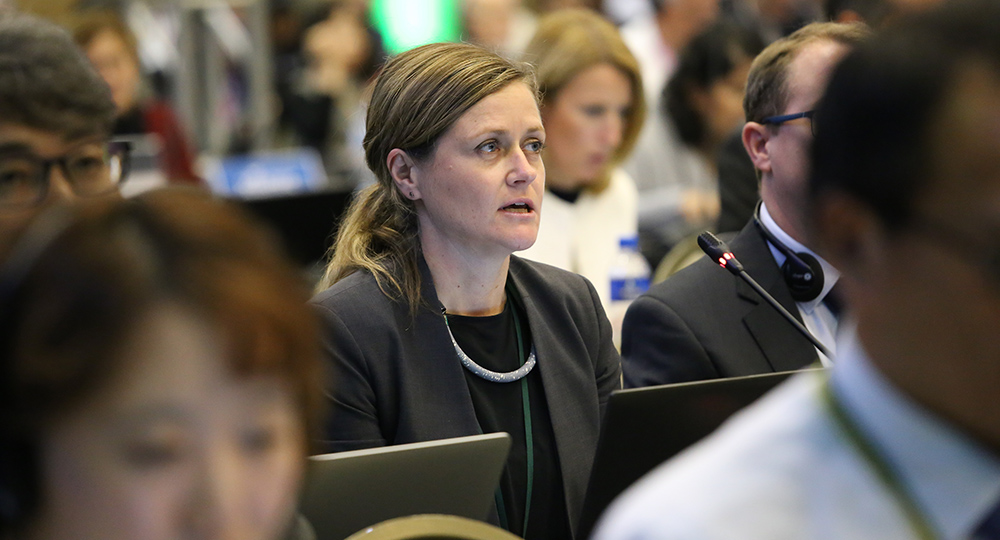
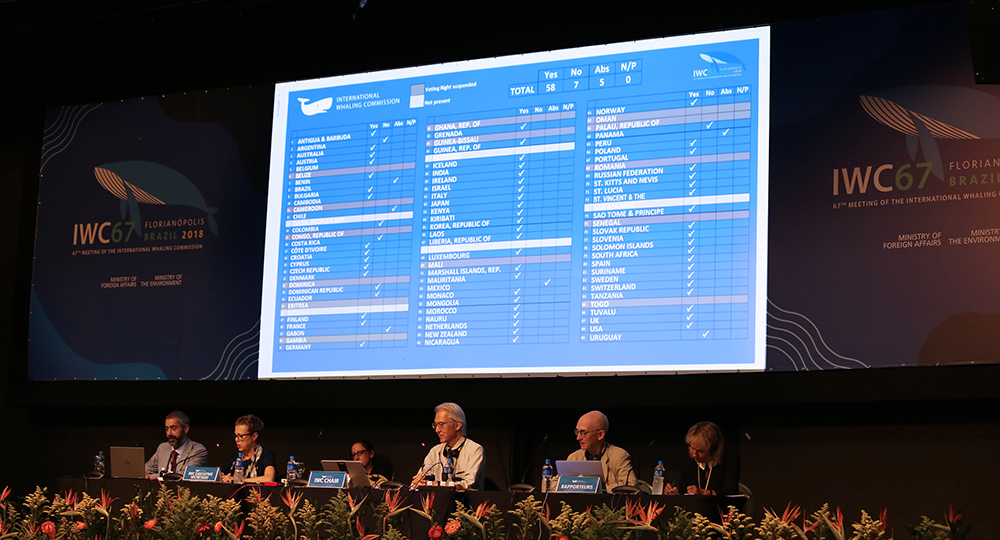
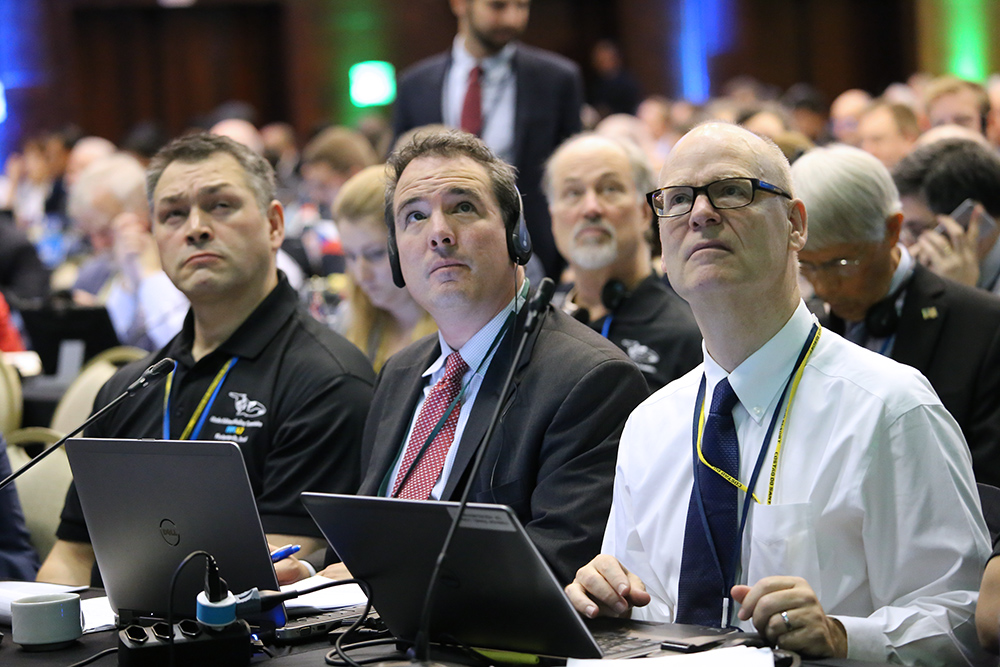
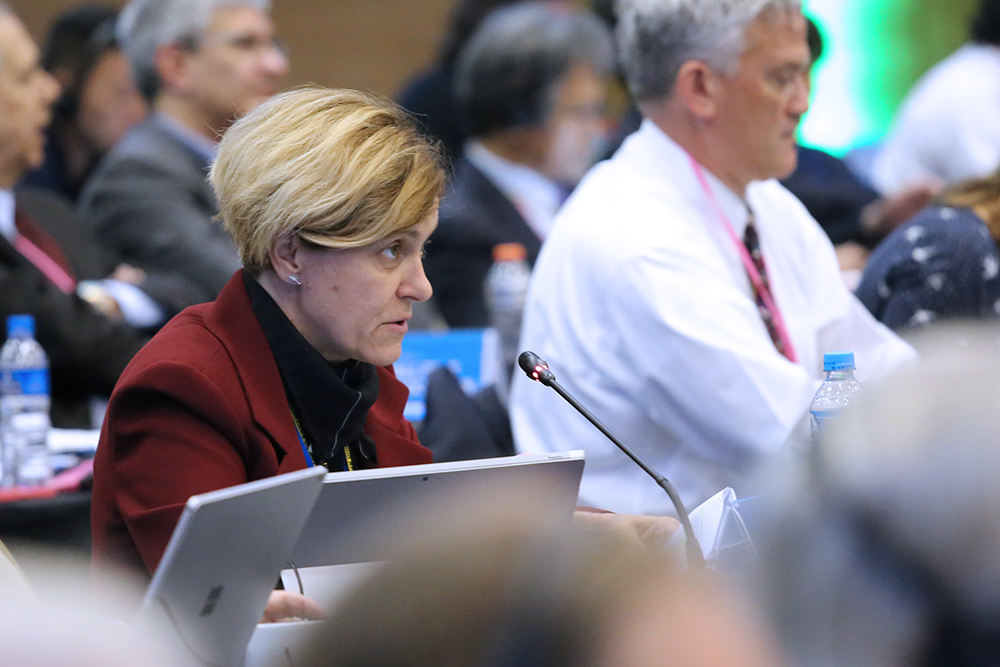
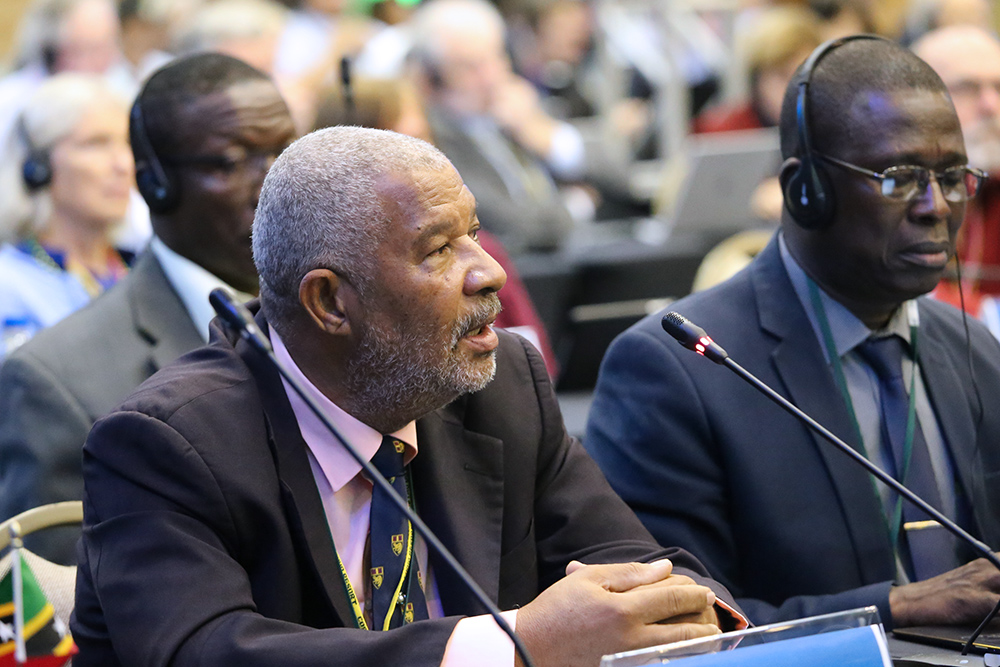
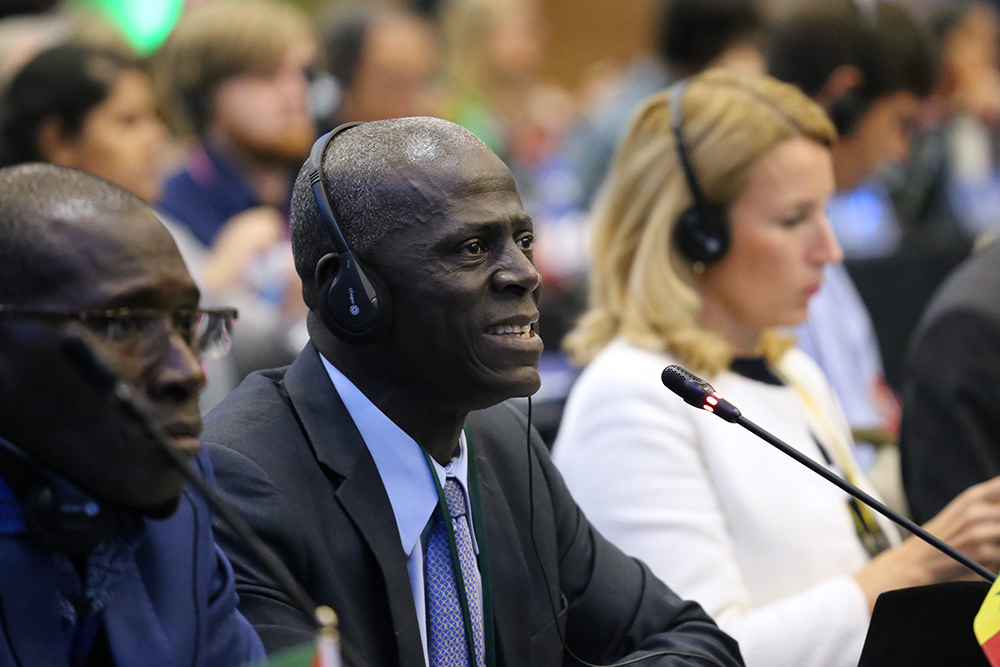
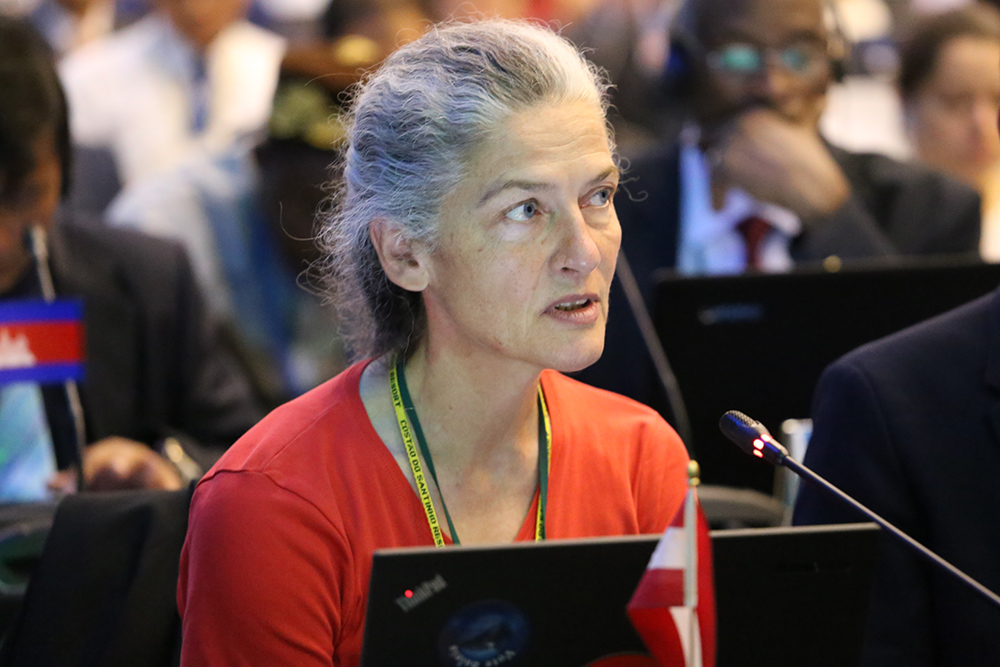
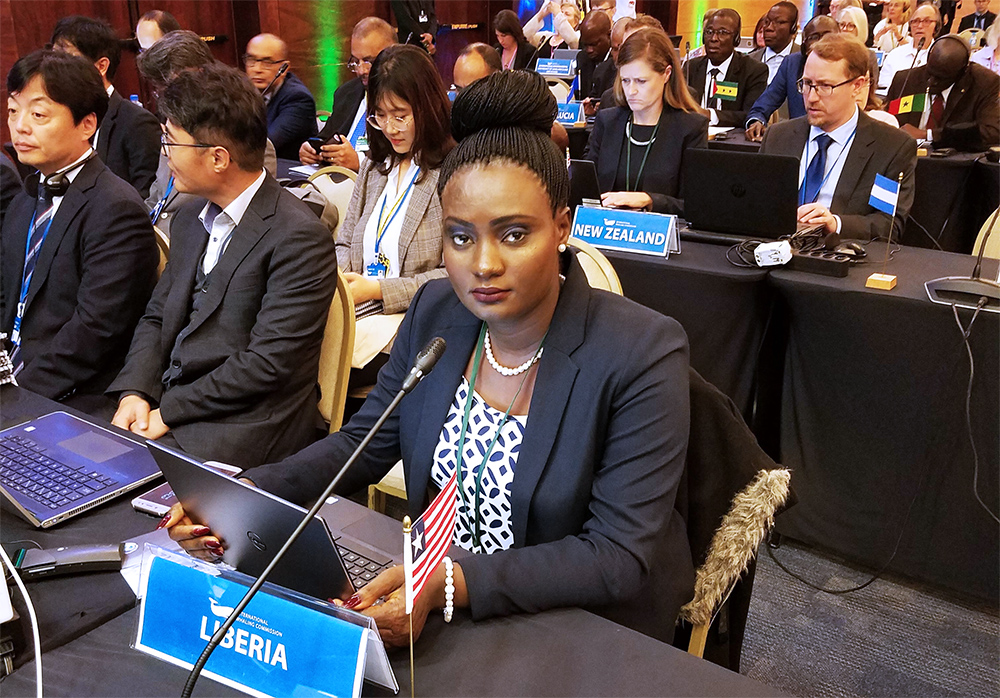
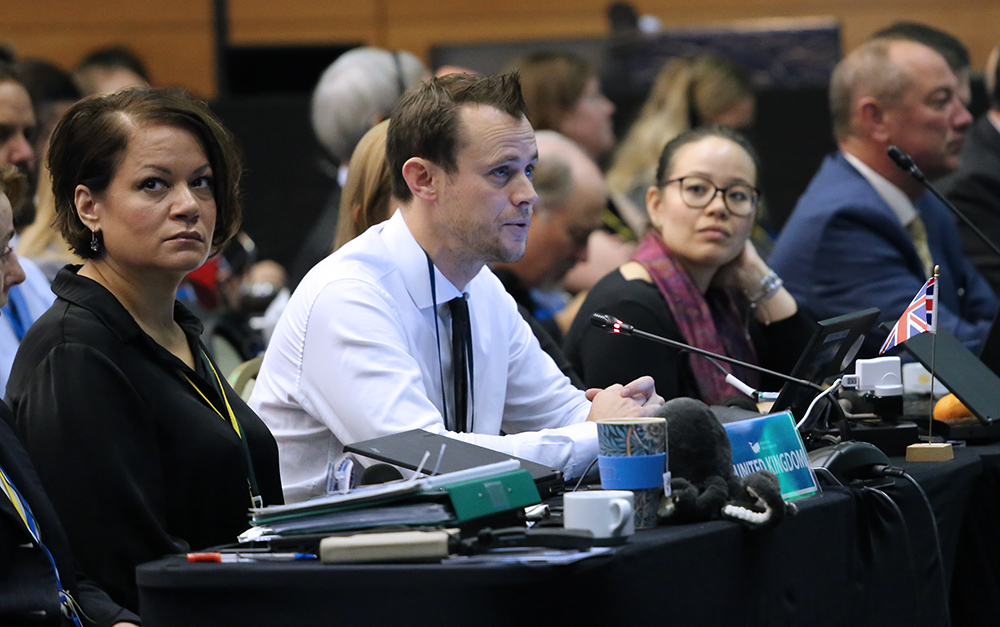
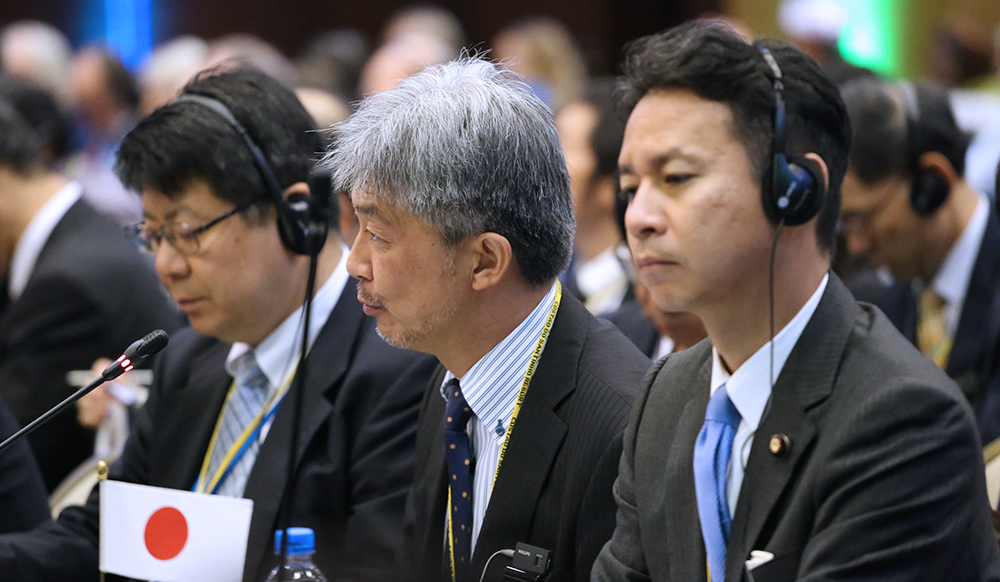
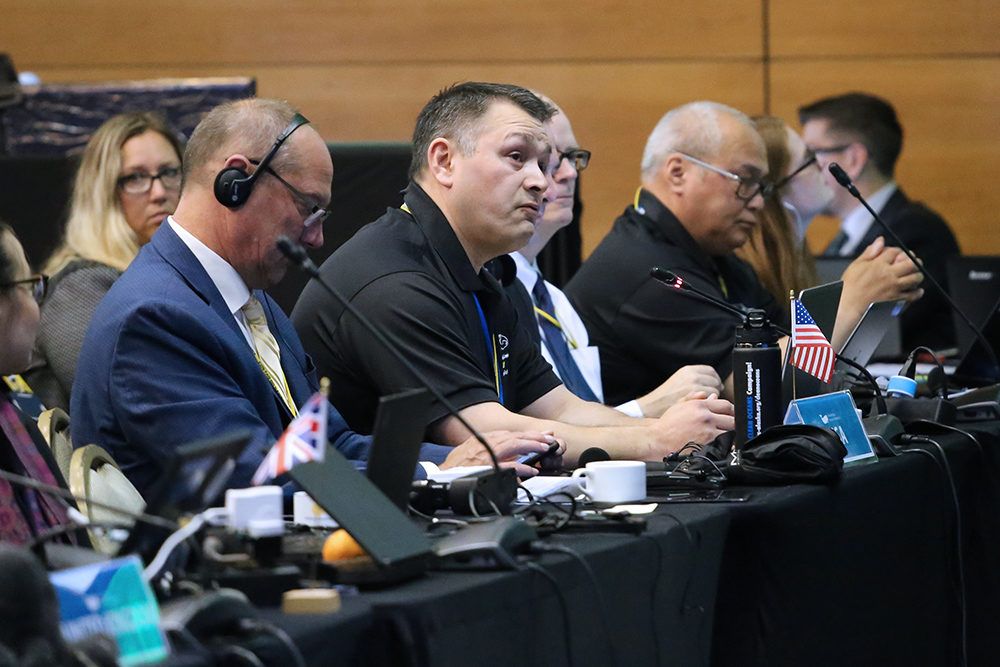
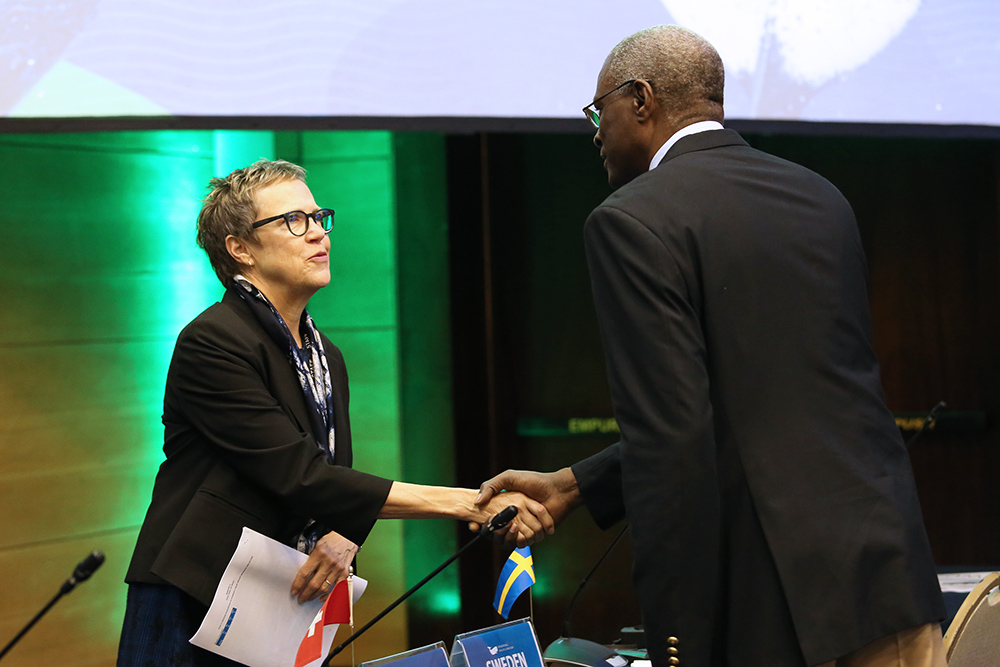
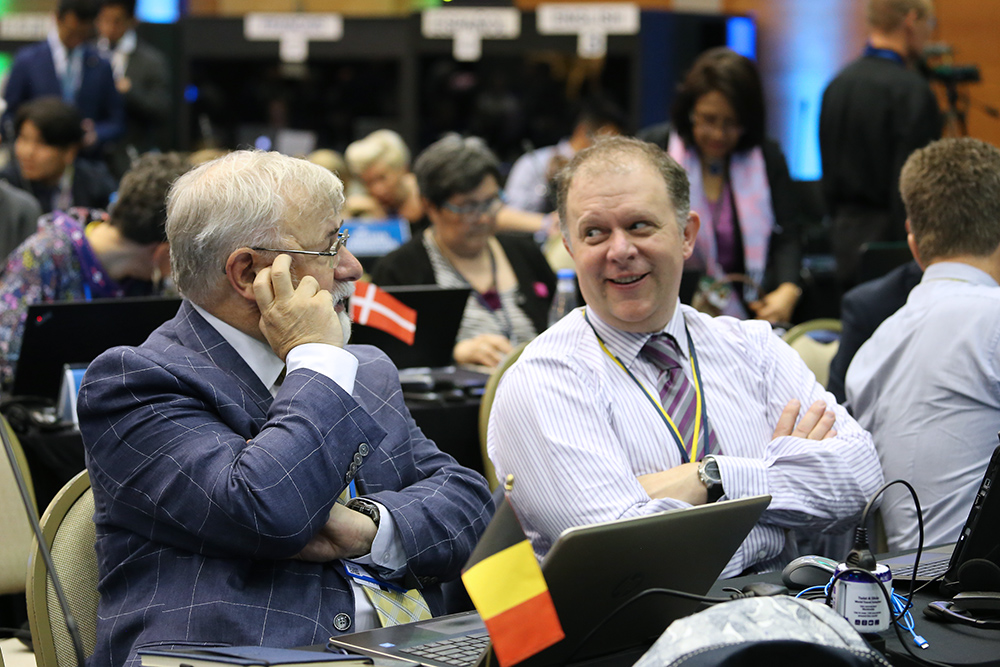
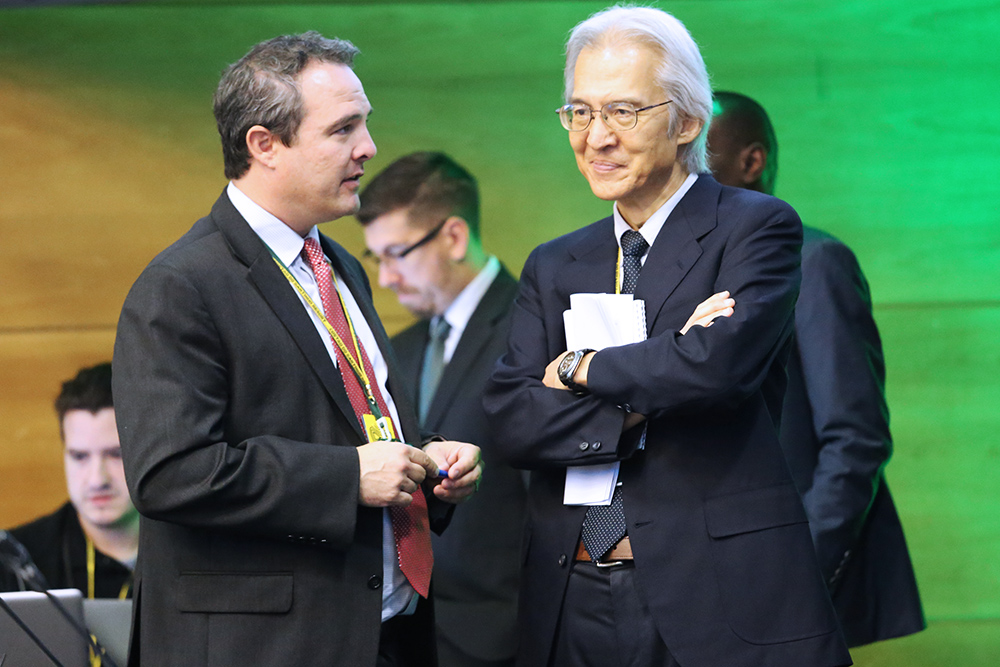
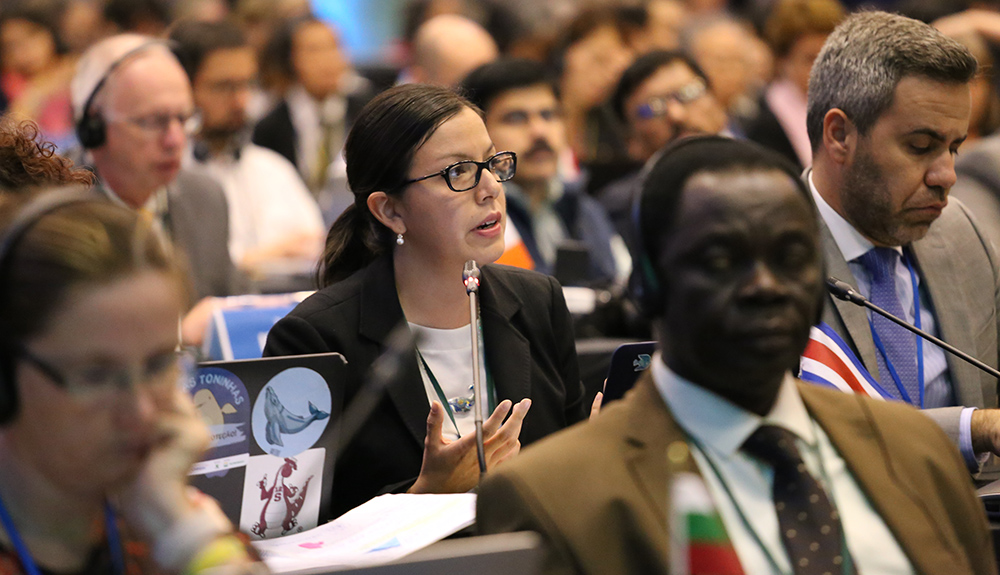
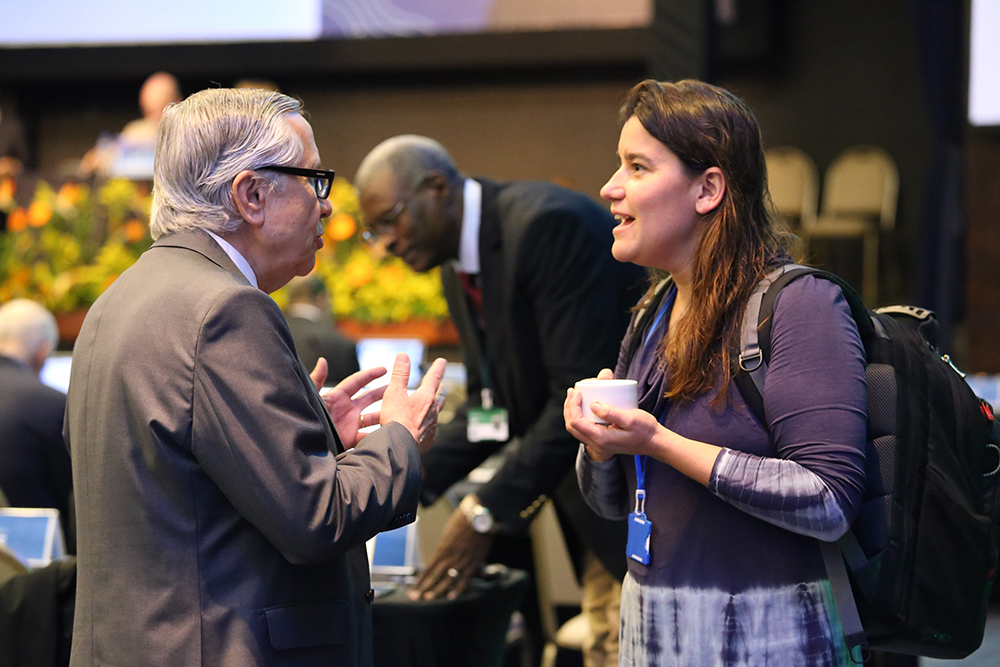

Around the Venue

